Faces of Freedom ~ PFC Lauren Hebrank & SPC Kristen Sanders
 Pfc. Lauren Hebrank, a medic with 710th Brigade Support Battalion, Task Force Spartan, helps administer medical care to an Afghan girl at the Korengal Outpost. Hebrank, along with another female Soldier, provided medical coverage to Task Force Spartan infantrymen and the local Afghan populace. (Courtesy photo)
Pfc. Lauren Hebrank, a medic with 710th Brigade Support Battalion, Task Force Spartan, helps administer medical care to an Afghan girl at the Korengal Outpost. Hebrank, along with another female Soldier, provided medical coverage to Task Force Spartan infantrymen and the local Afghan populace. (Courtesy photo)Afghanistan - Compassion on the frontlines of battle is a concept that few infantrymen or artillerymen would consider in the heat of a fire fight. For two medics with C Company, 710th Brigade Support Battalion, Task Force Spartan, the concept was far from strange: it was central to their mission.
Pfc. Lauren Hebrank and Spc. Kristen Sanders have recently returned from the Korengal Outpost, a small postage stamp of a firebase nestled deep in the Korengal Valley. The base is one of the most dangerous and often-attacked areas in TF Spartan’s area of operations. It is manned by rotating groups of infantrymen, all of which patrol the surrounding mountains on foot. The main mission of the Soldiers positioned on the “KOP” is to provide strong security in the area and form relationships with the locals in the surrounding villages.
“They wanted us, as females, to come out to the KOP to encourage the women and children of the area to come to the medical clinic for aid,” said Hebrank. “At first we had very few kids coming to the KOP for medical assistance. After only a short while more kids came for medical assistance because they were not as afraid of us (female Soldiers).”
Hebrank and Sanders worked with the children, sending them from the clinic with not only medical assistance but also humanitarian-aid items.
“We would give them stuff like shoes, clothes, rice and school supplies,” said Hebrank.
As Sanders and Hebrank continued their work at the KOP, more locals began to come. Children would bring other children.
“It was heartbreaking at times,” said Sanders. “These children seemed so starved for attention. They would come up to the base no matter what the conditions. Even when there was snow on the ground the kids would come. Many of them didn’t have hats or gloves, and some didn’t even have socks to warm their feet. Our hearts just went out to them. We wished we could take them home with us.”
Towards the end of the women’s time at the KOP, they received a special patient. An elder from one of the surrounding villages travelled down the mountain with his wife so she could receive medical care.
“We had treated plenty of kids and other locals, but this was the first woman we had treated,” said Sanders. “This was the first time that a woman had been brought to an American medical clinic in that area. We were so glad to treat her.”
Their more gentle and compassionate presence lent a special air to the KOP, helping to bridge cultural gaps. Their efforts proved extremely valuable to the work of coalition personnel in the area.
Although their presence softened the existence of the infantry in the Korengal, they were not exempt from the danger, which lurked in the mountains. “We got hit at least three times a week,” said Hebrank. “Sometimes we would have stints where we would get hit every day.”
The women were prepared for their time on the KOP.
“We went through a class to learn to call for artillery fire on the radio and a mortar class,” said Hebrank.
“The first few times we got hit when we first arrived were stressful,” said Sanders. “A million things went through my head. I hoped no one would get hurt, I hoped all my medical training would come through in the chance that someone did get hurt.”
The day came when a Soldier did get hurt. Sanders accompanied the line medics to aid the wounded Soldier. “I was nervous because I have never had to react to a wounded Soldier in a combat situation,” said Sanders. “The line medics, who are medics that go out with the infantry, remained calm and did their jobs without even thinking. Having them there helped to keep me calm. We stabilized the Soldier and had air support to come pick him up in no time.”
Hebrank was also broken into the rigors of combat medical aid during her time at the KOP.
“We had an ANA (Afghan National Army) soldier who got hit, and I was the one who removed the bullet from him,” said Hebrank. As Hebrank and Sanders experienced more attacks, they became more seasoned and familiar with procedure. They also became more accustomed to the primitive living conditions of the small base.
“We didn’t have running water, so we would fill up five gallon buckets from a water buffalo we had,” said Hebrank. “We would warm the water in big pots over a fire and then fill up a device called an Australian bag – that is a small shower bag. It worked, but it would still get cold, especially as winter began to set in.”
“We had everything we needed,” said Sanders. “Living on the KOP helps you to realize how little you actually need and what you are capable of doing without.”
“When we came back to Jalalabad Airfield, every meal we had for the first two weeks literally seemed like the best meal we had ever had,” said Hebrank. “Some may complain about the food in the dining facility, but after going for months without hot chow it was great.”
The women learned a great deal while on the mission. “We had to take our time up there seriously,” said Hebrank. “Knowing that your decision is the highest immediate medical decision makes things serious. Knowing you may have to treat and sustain a patient overnight until air support arrives pushes you to make sure you are always on your toes.”
“A lot of the injuries the infantrymen suffered were knee and ankle injuries from the wear and the tear of foot patrols in the mountains,” said Sanders. “At our last forward operating base Soldiers with musculoskeletal problems went directly to physical therapy. I had to reference a book to help the Soldiers that came to us.”
The women didn’t have an actual doctor with them during their forward mission, but used every resource to provide effective care for their patients.
The most valuable gift the girls took from their time at the KOP was one of perspective.
“When you see the faces of the guys coming back from being on the mountain and understand what these Soldiers go through on a regular basis, it makes you appreciate the little things,” said Sanders.“You see how happy the Afghan kids get from something as simple as a pop tart and it makes you think about the kids back home that have so much and may at times take it for granted,” said Hebrank.
The bond the women formed is similar to the ones of front line Soldiers who prevailed in the face of adversity. “Having a fellow female to share this time with has been awesome,” said Hebrank. “A lot of females don’t know what it’s like to be shot at with small-arms fire and be able to see their assailants in the nearby mountains. I value the time we had together.”
The girls have changed more than their perspective. Their demeanors are different. Hebrank is more mature than her age belies and Sanders, usually a shy girl, has learned to project herself and be more aggressive. Their time at the forefront of the Global War on Terror has given them strength, which they will keep and hopefully pass on as they move further into their careers.
The infantrymen of the KOP are striving each day to suppress the enemy, form bonds and work towards something better. These two medics of 710th can say they have now done a bit of the same.
Pfc. Lauren Hebrank and Spc. Kristen Sanders have recently returned from the Korengal Outpost, a small postage stamp of a firebase nestled deep in the Korengal Valley. The base is one of the most dangerous and often-attacked areas in TF Spartan’s area of operations. It is manned by rotating groups of infantrymen, all of which patrol the surrounding mountains on foot. The main mission of the Soldiers positioned on the “KOP” is to provide strong security in the area and form relationships with the locals in the surrounding villages.
“They wanted us, as females, to come out to the KOP to encourage the women and children of the area to come to the medical clinic for aid,” said Hebrank. “At first we had very few kids coming to the KOP for medical assistance. After only a short while more kids came for medical assistance because they were not as afraid of us (female Soldiers).”
Hebrank and Sanders worked with the children, sending them from the clinic with not only medical assistance but also humanitarian-aid items.
“We would give them stuff like shoes, clothes, rice and school supplies,” said Hebrank.
As Sanders and Hebrank continued their work at the KOP, more locals began to come. Children would bring other children.
“It was heartbreaking at times,” said Sanders. “These children seemed so starved for attention. They would come up to the base no matter what the conditions. Even when there was snow on the ground the kids would come. Many of them didn’t have hats or gloves, and some didn’t even have socks to warm their feet. Our hearts just went out to them. We wished we could take them home with us.”
Towards the end of the women’s time at the KOP, they received a special patient. An elder from one of the surrounding villages travelled down the mountain with his wife so she could receive medical care.
“We had treated plenty of kids and other locals, but this was the first woman we had treated,” said Sanders. “This was the first time that a woman had been brought to an American medical clinic in that area. We were so glad to treat her.”
Their more gentle and compassionate presence lent a special air to the KOP, helping to bridge cultural gaps. Their efforts proved extremely valuable to the work of coalition personnel in the area.
Although their presence softened the existence of the infantry in the Korengal, they were not exempt from the danger, which lurked in the mountains. “We got hit at least three times a week,” said Hebrank. “Sometimes we would have stints where we would get hit every day.”
The women were prepared for their time on the KOP.
“We went through a class to learn to call for artillery fire on the radio and a mortar class,” said Hebrank.
“The first few times we got hit when we first arrived were stressful,” said Sanders. “A million things went through my head. I hoped no one would get hurt, I hoped all my medical training would come through in the chance that someone did get hurt.”
The day came when a Soldier did get hurt. Sanders accompanied the line medics to aid the wounded Soldier. “I was nervous because I have never had to react to a wounded Soldier in a combat situation,” said Sanders. “The line medics, who are medics that go out with the infantry, remained calm and did their jobs without even thinking. Having them there helped to keep me calm. We stabilized the Soldier and had air support to come pick him up in no time.”
Hebrank was also broken into the rigors of combat medical aid during her time at the KOP.
“We had an ANA (Afghan National Army) soldier who got hit, and I was the one who removed the bullet from him,” said Hebrank. As Hebrank and Sanders experienced more attacks, they became more seasoned and familiar with procedure. They also became more accustomed to the primitive living conditions of the small base.
“We didn’t have running water, so we would fill up five gallon buckets from a water buffalo we had,” said Hebrank. “We would warm the water in big pots over a fire and then fill up a device called an Australian bag – that is a small shower bag. It worked, but it would still get cold, especially as winter began to set in.”
“We had everything we needed,” said Sanders. “Living on the KOP helps you to realize how little you actually need and what you are capable of doing without.”
“When we came back to Jalalabad Airfield, every meal we had for the first two weeks literally seemed like the best meal we had ever had,” said Hebrank. “Some may complain about the food in the dining facility, but after going for months without hot chow it was great.”
The women learned a great deal while on the mission. “We had to take our time up there seriously,” said Hebrank. “Knowing that your decision is the highest immediate medical decision makes things serious. Knowing you may have to treat and sustain a patient overnight until air support arrives pushes you to make sure you are always on your toes.”
“A lot of the injuries the infantrymen suffered were knee and ankle injuries from the wear and the tear of foot patrols in the mountains,” said Sanders. “At our last forward operating base Soldiers with musculoskeletal problems went directly to physical therapy. I had to reference a book to help the Soldiers that came to us.”
The women didn’t have an actual doctor with them during their forward mission, but used every resource to provide effective care for their patients.
The most valuable gift the girls took from their time at the KOP was one of perspective.
“When you see the faces of the guys coming back from being on the mountain and understand what these Soldiers go through on a regular basis, it makes you appreciate the little things,” said Sanders.“You see how happy the Afghan kids get from something as simple as a pop tart and it makes you think about the kids back home that have so much and may at times take it for granted,” said Hebrank.
The bond the women formed is similar to the ones of front line Soldiers who prevailed in the face of adversity. “Having a fellow female to share this time with has been awesome,” said Hebrank. “A lot of females don’t know what it’s like to be shot at with small-arms fire and be able to see their assailants in the nearby mountains. I value the time we had together.”
The girls have changed more than their perspective. Their demeanors are different. Hebrank is more mature than her age belies and Sanders, usually a shy girl, has learned to project herself and be more aggressive. Their time at the forefront of the Global War on Terror has given them strength, which they will keep and hopefully pass on as they move further into their careers.
The infantrymen of the KOP are striving each day to suppress the enemy, form bonds and work towards something better. These two medics of 710th can say they have now done a bit of the same.
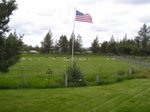


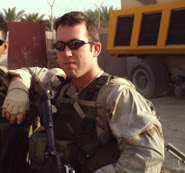










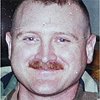


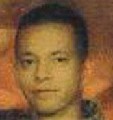









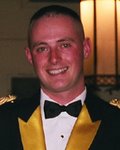






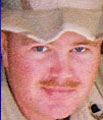
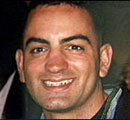




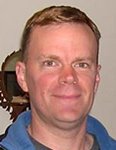
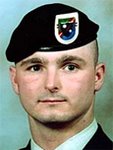




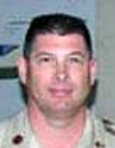
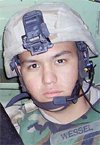
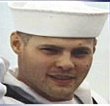
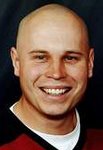
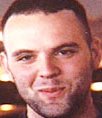
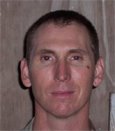

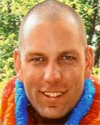
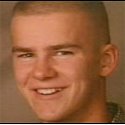
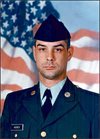


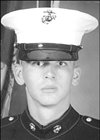
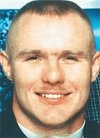
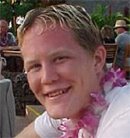

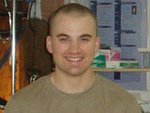

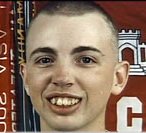


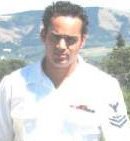

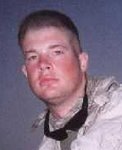
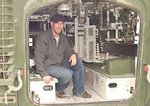
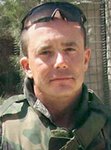

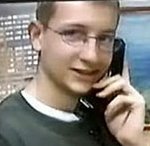

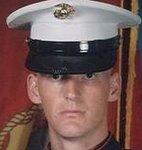
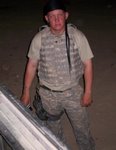
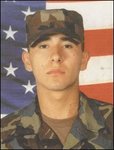
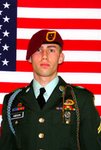

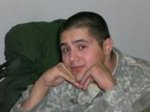
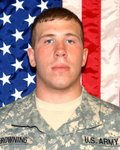





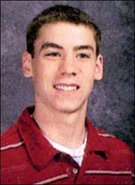
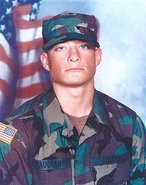
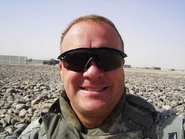
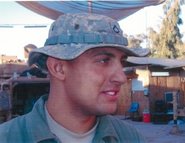
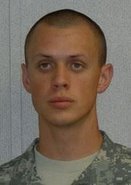
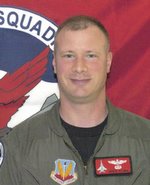
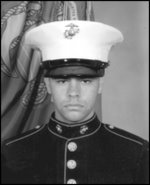
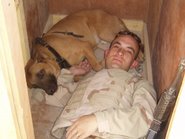
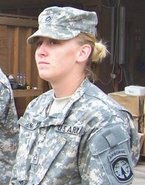
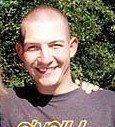
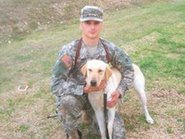

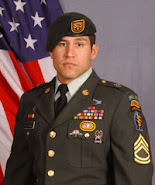

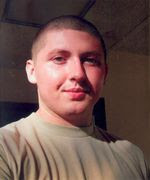



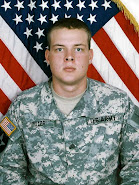
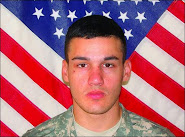



6 comments:
I absolutely love your blog. I will be back.
Thank you for stopping by.
great news from great people... again!
Thanks, Gazing. Wonderful story. I hope Heidi meets these amazing women.
i photographed while i was at the KOP . she is an amazing woman and I admire her for hard work there.
http://www.chadhuntphotography.com/theKOP/pages/theKOP_055.htm
http://www.chadhuntphotography.com
My son just arrived at this camp, it helps to learn about this place and realize how much prayer is needed to sustain all who serve there. Thanks to Chad Hunt for his amazing photos.
Anon~
If there is anything we can do to help support you or your son, please email me...
We will keep him in our thoughts and prayers!
PS - I understand things that can be made with hot water, like oatmeal and soup cups are much appreciated at this camp.
Post a Comment